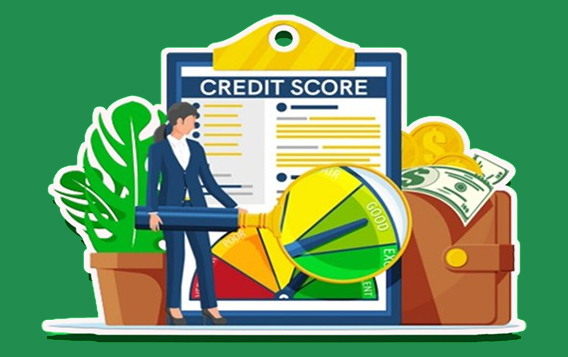Poor handling of personal loan or other types of credit can potentially affect your credit score. A personal loan can affect your credit score and potentially be beneficial in the long run if managed properly. Also, your credit history and the other debts included on your credit reports will affect how much improvement you obtain.

Additionally, repaying a personal loan on time should boost your overall credit score. If you decide to take one out, carefully research and assess your options to guarantee you get the greatest rate. Furthermore, while a personal loan offers multiple benefits, the negative effects must be considered before signing the contract.
What Is a Personal Loan
A personal loan is a financial contract offering a lump sum of cash with installment repayments, typically unsecured, unlike mortgages and auto loans. For this reason, personal loans may have slightly higher interest rates than auto loans or other secured credit. However, their annual percentage rates (APRs) are far less than those of credit cards.
How Does a Personal Loan Affect Your Credit Score
Your credit score is estimated by considering five different factors, such as new credit, credit mix, duration of credit history, payment history, and amounts owed. According to FICO, 10% of your credit score is calculated by any recently opened credit lines or new debt. In addition, the remaining 10% is determined by your credit mix or the total number of open credit lines (including secured credit cards).
These precise percentages differ between the three major credit rating agencies. Therefore, getting a new personal loan can affect your credit score. Furthermore, your remaining debt will grow, and you will need to obtain a new debt. Credit agencies also monitor new financial activities.
For instance, applying for an auto loan shortly after obtaining a personal loan may result in the application being declined due to existing debt. A single new loan has less of an impact on your credit score than your whole credit profile. With a great debt management history and consistent payments, a new loan is unlikely to have a significant influence on your credit score.
How Does a Personal Loan Affect Your Credit Score Positively
A personal loan can help affect your credit score positively by increasing your credit mix and enhancing your payment history. Additionally, debt consolidation might help you improve your credit usage percentage.
Payment history
Your payment history accounts for the majority (35 percent) of your FICO score. Making early loan payments will help you enhance your credit score. However, it can take many months for it to be beneficial. Additionally, it will take at least a year to make up for the damage caused by a hard inquiry from the lender when you apply.
Credit mix
Another way personal loans can help your credit score is by having many accounts. Your credit mix, or the diversity of your accounts, accounts for 10% of your FICO score. The loan, if combined with two credit cards, could potentially enhance your credit mix and potentially boost your credit score. Additionally, credit is a crucial financial tool that demonstrates one’s ability to manage various types of debt effectively.
Credit utilization ratio
Consolidating credit card debt with a personal loan might raise your credit utilization ratio (CUR), which accounts for 30% of your FICO score. For this reason, you can know the amount of your credit is affected by revolving debt using credit usage measurements.
How Does a Personal Loan Affect Your Credit Score Negatively
Personal loans can be reported to TransUnion, Equifax, and Experian, the three major credit bureaus. If it is, the loan may be included when assessing your credit rating. Furthermore, a personal loan may affect or enhance your credit score.
Here are some instances of how taking out a personal loan might result in a decline in your credit scores:
Missed payments
It’s crucial to pay bills on time and avoid missing or late payments. According to the Consumer Financial Protection Bureau, your payment history influences your credit ratings. Furthermore, the better your payment history, the higher your credit score. However, if you miss or are late with payments, it may reduce your credit score.
Hard inquiry
Even if you can prequalify for a personal loan with a soft credit check, submitting a formal application will result in a hard inquiry. A single hard credit check will hurt your credit score, regardless of how minor. However, applying for many credit accounts in a short period may indicate a higher risk, according to FICO.
Outstanding debts
The amount due on your credit also rises when you take out a personal loan. For this reason, your score could slightly decrease. The outstanding debt on your installment loans is one of five components that determine the total amount owed. It also takes into consideration the total amount owing on various credit accounts.
A preapproval procedure is usually available from most lenders, so you may avoid a harsh hit until you are ready to borrow money. However, having too many at once might be a red flag to potential lenders. If you apply within two weeks, you could also be able to apply with many lenders and have them weighted as a single inquiry.
Final Thought
Your credit score will initially take a little knock from a personal loan, but if you make your payments on time, it will rise again and eventually help you build better credit. To help you choose the ideal loan repayment period, a personal loan calculator might be a great resource.

